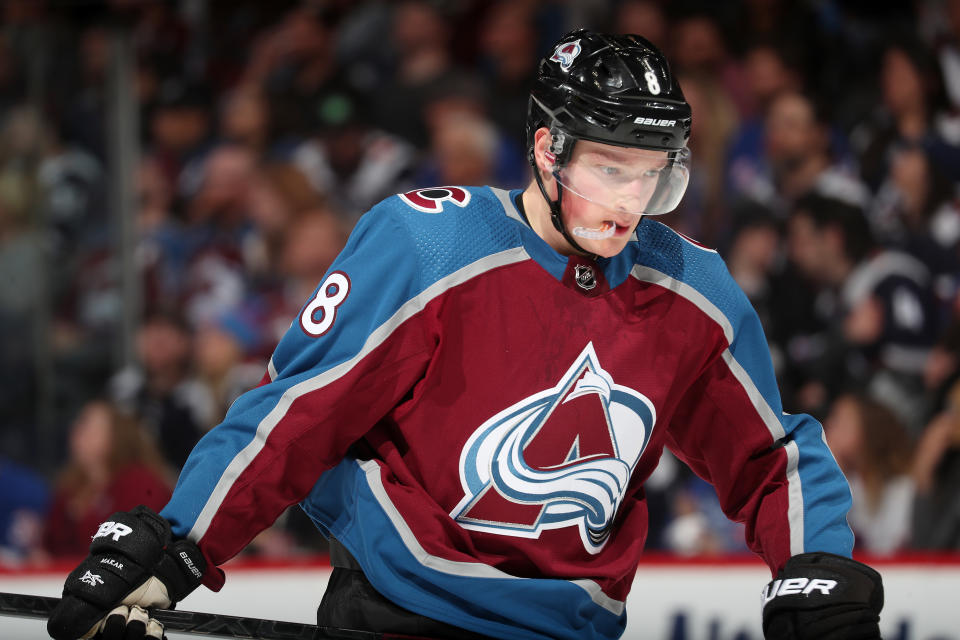Your Fantasy Hockey Refresher: Where we left off with the NHL
By Jason Chen, RotoWire
Special to Yahoo Sports
With just a few short days until the puck drops on the NHL play-in playoff series this Saturday, Jason Chen takes us through a refresher of where we left off when play was paused.
It certainly feels like a lifetime ago. We're all eagerly awaiting hockey to distract us from the issues disrupting our normal day-to-day lives, and in just a few short days, the NHL will return to action. It‘s an interesting time to be a hockey fan for a variety of reasons, from the neutral-site games, unprecedented best-of-five series, and the lack of fan attendance and its impact on the crowd energy the NHL postseason is so renowned for.
Most important to poolies, of course, is the performance of the players amidst all these new variables after such a long layoff. It’s tougher than ever to forecast fantasy production, so before you look forward to your playoff draft or resumption of DFS play, let’s look to the past.
Here's a refresher of what was happening when play was paused ...
Goal scoring up across the league
At 3.02 goals per game, the 2019-20 season was a goalie's worst nightmare since the first post-lockout season when a league-wide crackdown on obstruction led to a faster and free-flowing game. It also marked just the second time since the 1990-91 season in which the average power-play efficiency exceeded 20 percent, with the Oilers setting a new record-high at 29.5. There are more elite players than ever in the NHL, and that's also a plausible reason why there's so much parity. This season saw eight players average at least 1.25 points per game (minimum 40 games), compared to just 10 players from the 2009-10 to 2015-16 seasons. Not having the league's best player on your fantasy squad is not the hindrance it once was.
Four-Forward Power Plays
One of the biggest trends league-wide has been the implementation of a power-play system with four forwards. In past seasons, teams often used an overload setup, splitting the ice in half with two defensemen on the blue line, but now they're increasingly in favor of creating offense from the half-walls with two forwards down low and a shoot-first forward on the blue line. The top five power plays in the league — Edmonton, Boston, St. Louis, Vancouver, Tampa Bay — routinely deploy just one defenseman. Oscar Klefbom, Torey Krug, Alex Pietrangelo, Quinn Hughes, and Victor Hedman are top-12 in power-play points among defensemen with an average gap of 14.6 points between the next highest-scoring defenseman on their respective teams. This has also added a lot of value to second-line forwards who get time on the top power-play units, such as Ryan Nugent-Hopkins.
Mobile Defensemen are all the rage
Rookies Quinn Hughes and Cale Makar dominated the Calder conversation all season, and their immediate success is further testament to the more free-wheeling NHL. Where teams were once reluctant to allow their defensemen to jump up in the play, it is now encouraged. The new style has allowed more one-dimensional defensemen such as Tony DeAngelo to excel, but the flip side is that defensemen who make a living blocking shots and dishing hits all of a sudden have become rarer, making them even more valuable in fantasy leagues that count peripherals. Only 17 defensemen managed to average five blocked shots per 60 and five hits per 60 (minimum 40 games), which is the least since 2007-08.

Goalies come in pairs
Gone are the days when a team relies on a single goalie for 60-plus starts. Only a few can pull that off, and mostly by necessity due to the lack of a solid backup. Anton Khudobin, Darcy Kuemper, Jake Allen, Elvis Merzlikins, Pavel Francouz, Tristan Jarry and Robin Lehner rank in the top 15 in save percentage (minimum 15 games) and have helped guide their teams into the playoffs even though none were considered key pieces at the beginning of the season.
For some teams like Arizona, Columbus, Pittsburgh, and Vegas, it remains to be seen who will start (or finish) the series in net, but it's become increasingly normal for coaches to rotate starts or switch goalies quickly during games. Unless the goalie is truly elite or has a strong hold on the starting spot, like Connor Hellebuyck or Andrei Vasilevskiy, having a tandem in net has paid off this season.
The Lightning remain favorites
They may have finished fourth this season, but going back to last season they've amassed 220 points, 13 more than second-place Bruins. The Lightning blitzed through the 2018-19 season only to be caught off-guard by the Jackets in a first-round sweep, but after pacing themselves this year the belief is that coach Jon Cooper's squad is more mentally and physically prepared to play the long game. The Lightning are deeper and finally have a bit of rest of their side, so they should be healthy and ready for a long run.
Teams are (mostly) at full strength
For the most part, teams will enter the playoffs with a roster healthier than before. Those who were expected to miss the rest of the regular season, or at least part of the playoffs, are now available, including top scorers Jake Guentzel and Vladimir Tarasenko. Sami Vatanen is expected to make his Hurricanes debut, and his inclusion should stem the loss of Brett Pesce and Dougie Hamilton, the latter of whom had recovered from a broken leg only to suffer another lower-body injury during camp.

 Yahoo Sports
Yahoo Sports 